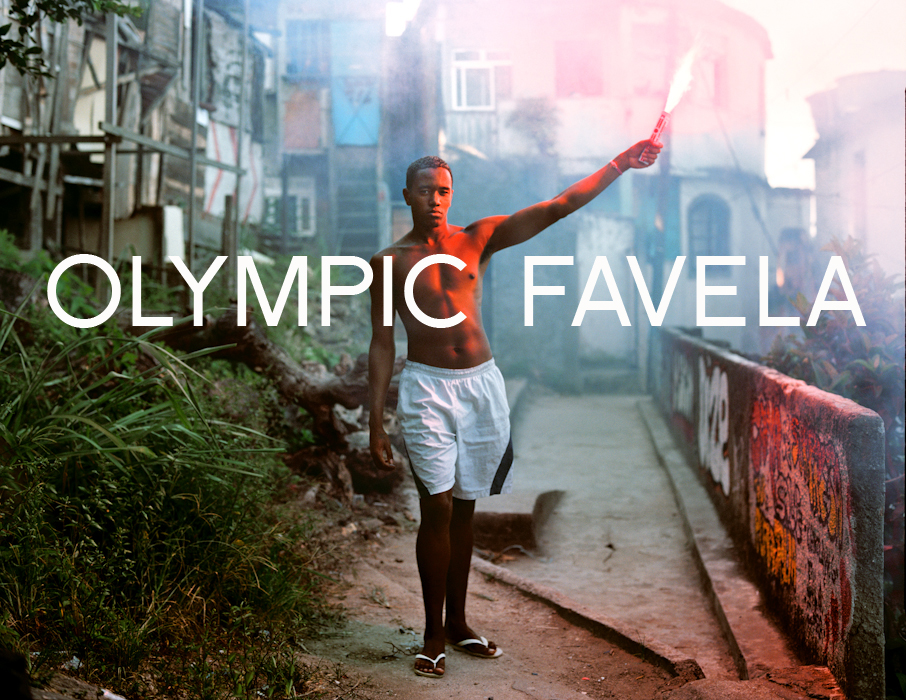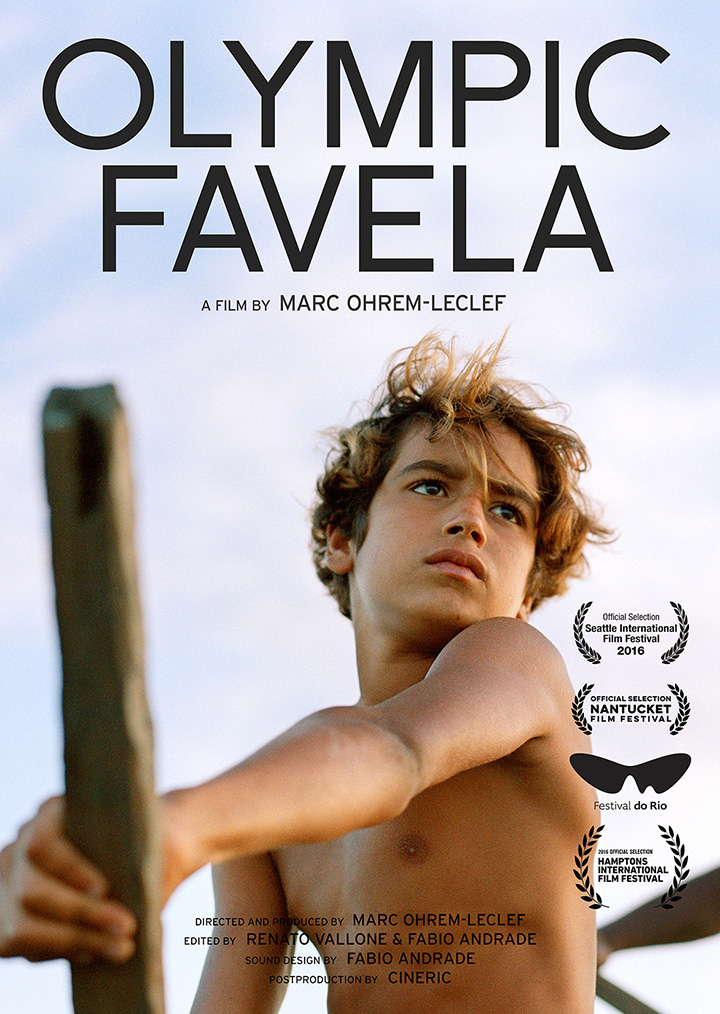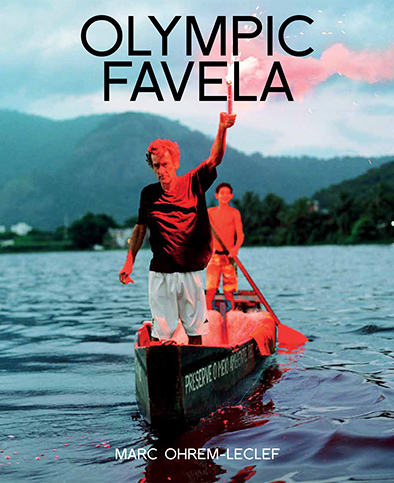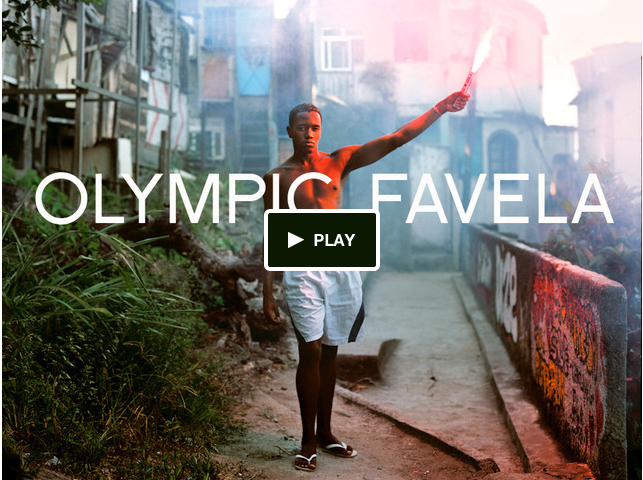
MENU
In 2006 I followed news of the infamous destruction of Beijing’s historic Qianmen district ahead of the 2008 Olympic Games. The fact that an event which is to embody the spirit of unity directly causes the destruction of historic neighborhoods and removal of thousands of residents struck me deeply.
The Olympic Favela project (2012-2016) visualizes the effects of forced removal of residents in 14 of Rio de Janeiro’s favelas, implemented by the city government in preparation for the World Cup (2014) and the 2016 Olympic Games.
In 2012, in response to news reports of widespread evictions of residents from their homes and businesses through Rio’s housing authority Secretaria Municipal de Habitação (SMH), I began photographing the people affected by these evictions, as well as the residents organizing resistance to SMH’s policies.
Olympic Favela consists of two types of portraiture: The first type is environmental portraiture of the residents, photographed in front of their homes, which have been designated for removal by SMH with spray-painted code numbers. The second type is directed imagery of residents posing with flaming emergency torches, photographed in their communities. In these images the residents are no longer a subject that I look upon; their role in the image becomes active as they embrace the opportunity to represent their community, their struggle, and their resistance.
Referencing iconic imagery ranging from Delacroix’s Liberty Leading the People and Bartholdi’s Liberty Enlightening the World to now-iconic news imagery of the Arab Spring, the residents’ gesture and use of the torch in these photographs invoke ideas of liberation, independence, resistance, protest and crisis while also making use of the core symbol of the Olympic Games—the torch.Together with the portraits, these images juxtapose the dynamics of celebration and togetherness with those of struggle based on social-economic disparity, which the mega-events are bringing to Rio de Janeiro and its citizens.
The final chapter of the project takes the form of a short documentary film which examines the relationship the favela residents have with their homes, their communities, and gives a glance at how heavily they are impacted by the urban development taking place now.
Marc Ohrem-Leclef and curator Mazie M. Harris discuss Olympic Favela (PDF)
Click here to view more images from Olympic Favela.

OLYMPIC FAVELA
Documentary film by Marc Ohrem-Leclef
Color, running time 19 min.
USA / Brazil 2016
Festival screenings 2016:
Official Selection, Seattle International Film Festival
Official Selection, Nantucket Film Festival
Official Selection, Hamptons International Film Festival
Official Selection, Festival do Rio
The short documentary OLYMPIC FAVELA examines the relationship the favela residents have with their homes and communities and gives a glance at how heavily they are impacted by the dramatic urban development taking place.
At the center of the film are two families from Favela Vila Autodromo, an idyllic community at the shore of the lagoon of Jacarepagua. In close proximity to the newly built Olympic Park, the families of fisherman Barao and the baker Arimatea are forced to give up their homes and businesses.
While Barao’s family is torn apart by virtue of how the city allocates replacement housing in hastily built social housing complexes, Arimatea’s new home bears the promise of a new start.


OLYMPIC FAVELA
Photographs by Marc Ohrem-Leclef
88 pages, 67 photographs
Published by Damiani, 2014
Ahead of the World Cup (2014) and the 2016 Olympic Games, the government of Rio de Janeiro has been removing thousands of residents of the 1.4 million people living in Rio’s shantytowns, of favelas, in an effort to reshape the city’s urban landscape.
This book puts a human face on this story of eviction.
With texts by Marc Ohrem-Leclef, Itamar Silva (NGO iBase, Rio de Janeiro) and Luis Pérez-Oramas (Curator, Museum of Modern Art, New York).
Purchase a signed copy of OLYMPIC FAVELA for $45, email marcleclef (at) gmail.com
Order at your local bookstore using this order number:
ISBN 9788862083386.
 OLYMPIC FAVELA – Kickstarter fundraiser for the book’s production
OLYMPIC FAVELA – Kickstarter fundraiser for the book’s production
 |
 |
 |
 |
 |
 |
 |
 |
 |
 |
 |
 |
 |
 |
 |
 Radio Interview |
 |
 |
 |
 |
 |
 |
 |
 |
| |
 |
 |
 |
 |
 |
| |
 |
 |
 |
 |
 |